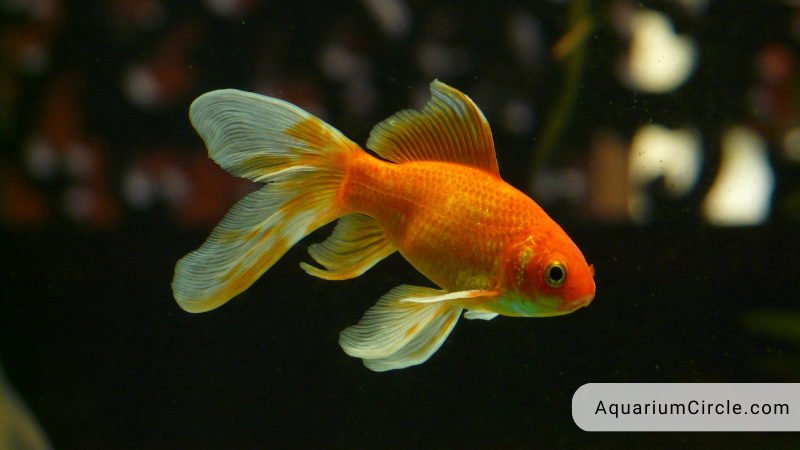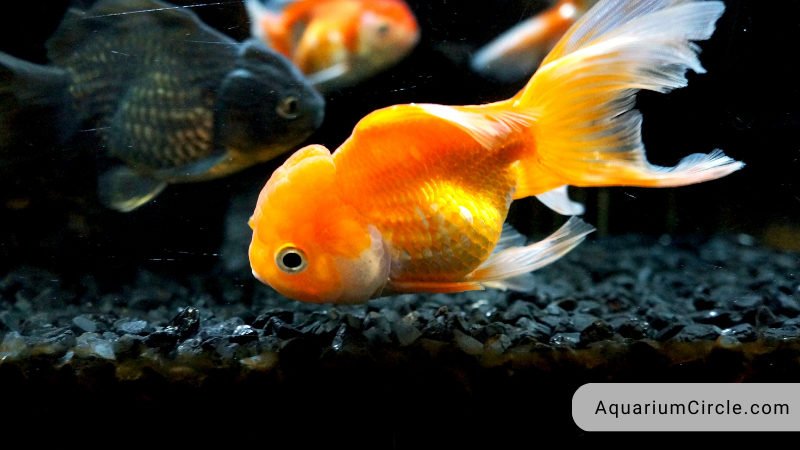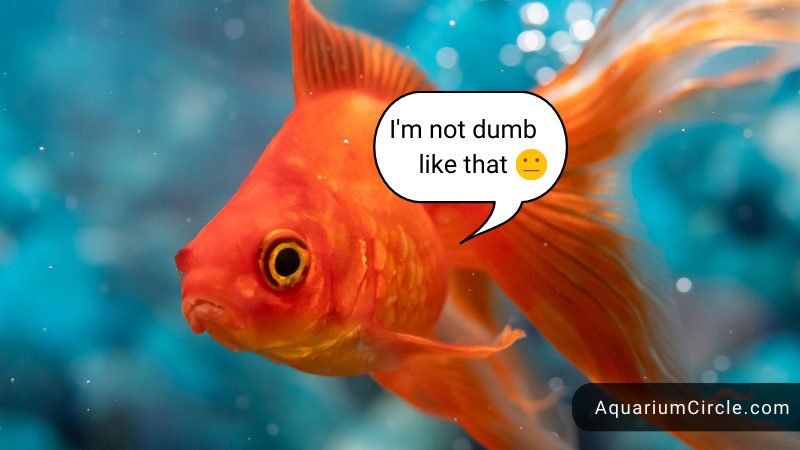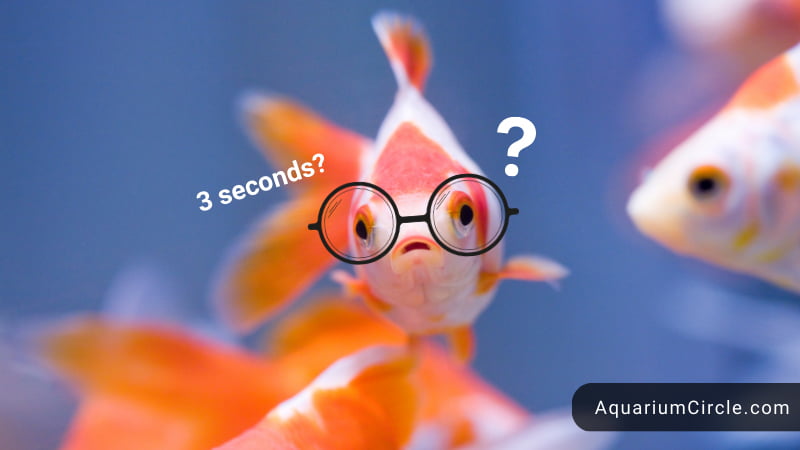Goldfish are popular pets that have been kept in homes for centuries. They are known for their bright colors, unique personalities, and seemingly simplistic lifestyle. However, there is a common myth that goldfish have a memory span of only three seconds. This belief has been perpetuated for years, causing many to question the cognitive abilities of these beloved pets. But what is the truth about goldfish memory?
In this blog post, we will explore the scientific research behind goldfish memory, the evolutionary history of their cognitive abilities, and techniques for improving your pet fish. By the end of this post, we hope to dispel the myth of the three-second memory and provide valuable information for pet owners and anyone interested in the fascinating world of fish cognition.
Goldfish do not really have a three-second memory. This is a common myth that has been perpetuated over time, but scientific research has shown that goldfish have a much longer memory span. Studies have demonstrated that goldfish are capable of retaining information for several months and are able to remember things like feeding times, familiar faces, and even mazes. Goldfish also have the ability to learn and adapt to their environment, suggesting that their cognitive abilities are more complex than previously thought. So, while the myth of the three-second memory may be a popular belief, it is not an accurate representation of goldfish cognitive abilities.
See also:
- What Is The Iq Of A Goldfish? Let’s See How Incredibly Smart They Really Are
- Can Goldfish Live Alone? Let’s Find Out What Goldfish Really Feel Like When They’re Lonely
- Do Goldfish Have Personalities? – 3 Important Things For You
The Truth About Goldfish Memory
Now, before dive into the goldfish memory myth, let’s take a look at some scientific research as well as how the goldfish lifespan and environmental factors affect the memory of goldfish.
Overview of the scientific research on goldfish memory
Scientific research on memory of a goldfish has shown that these popular aquatic pets are capable of more complex cognitive abilities than previously believed. Goldfish have been the subject of numerous studies that have explored their memory, learning, and problem-solving skills. These studies have used a variety of methods, including maze tests, operant conditioning, and object recognition tasks.
One study, for example, found that goldfish could remember and recognize complex spatial patterns for up to a year. Another study conducted at Plymouth University in the UK demonstrated that goldfish could be trained to press a lever to receive food, and they were able to remember this behavior for several months. Additionally, researchers at an Israeli university successfully trained fish to associate a specific piece of classical music with food. Even five months after the initial one-month training period had ended, the fish still demonstrated their memory by swimming over and searching for food when they heard the same piece of music being played.

The research has also explored the factors that impact goldfish memory, such as the age of the fish, the complexity of the task, and the frequency of repetition. For example, younger goldfish’s memory is much longer than older ones, while more complex tasks require more frequent repetition to be remembered.
Overall, the scientific research on goldfish memory suggests that these pets have much more complex cognitive abilities than previously believed. Goldfish can actually remembering things and recognizing them such as: patterns, objects, and people, and they can learn and adapt to their environment. This research has important implications for the treatment and care of goldfish, as well as our understanding of fish cognition in general.
The lifespan of a goldfish and how it impacts memory
The lifespan of a goldfish can impact its memory abilities. On average, goldfish have a lifespan of around 10-15 years, although they can live up to 20 years or more with proper care. As goldfish age, their memory abilities may decline, much like in humans and other animals.
Research has shown that younger goldfish have better memories than older ones. For example, one study found that young goldfish had memory long enough to remember a maze task for up to 12 months, while older goldfish could only remember the task for up to 3 months. Additionally, older goldfish have been found to have decreased neuron numbers in certain parts of their brain, which may impact their memory and learning abilities.
See also: Why Do Goldfish Die So Fast? – Here Are 7 Reasons Why!
The role of environmental factors in goldfish memory

Environmental factors can play a significant role in the memory abilities of goldfish. The environment that a goldfish is kept in can affect its cognitive development, stress levels, and overall health, which in turn can impact its memory and learning abilities.
One key environmental factor that can affect goldfish memory is the size and complexity of their habitat. Goldfish kept in small, bare goldfish tanks with little stimulation may become bored and disengaged, leading to decreased memory and learning abilities. In contrast, goldfish kept in larger fish tanks with plenty of plants, hiding spots, and toys may have better cognitive abilities and memory retention.
See also: 30 Gallon Goldfish Tank: Goldfish Tank Size Guide
Another environmental factor that can affect goldfish memory is water quality. Poor water quality, with high levels of ammonia, nitrites, or other toxins, can cause stress and damage to the goldfish’s brain, leading to memory and learning problems. Regular water changes, filtration, and proper maintenance can help ensure good water quality and support the cognitive abilities of goldfish.
Additionally, the diet of a goldfish can also impact its memory and cognitive abilities. A balanced diet that includes essential nutrients like protein, vitamins, and minerals can support brain health and function, while a diet lacking in essential nutrients can lead to cognitive decline.
In conclusion, environmental factors like size of the tank and complexity, water quality, and diet can all impact the memory and learning abilities of goldfish. Providing a stimulating environment, good water quality, and a balanced diet can help support the cognitive development and abilities of goldfish.
The Myth Of The 3 Second Memory Span

The myth that goldfish memory spans are just three seconds long for goldfish has been perpetuated for decades, but it is simply not true. While it is true that goldfish have a shorter memory span than humans, their memory abilities are much more complex than the myth suggests.
In fact, research has shown that goldfish actually can remember and recognize complex spatial patterns longer than 3 seconds, even up to a year, and can even learn and remember behaviors such as pressing the lever to receive food for several months. Goldfish can also remember the timing of feeding and can recognize familiar faces and objects. These findings suggest that goldfish are capable of more complex cognitive abilities than previously believed.
It is believed that the myth of the 3-second memory span for goldfish may have originated from the observation that goldfish tend to swim around in circles, seemingly forgetting what they were doing moments before. However, this behavior is more likely due to their natural tendency to explore their environment and forage for food, rather than a lack of memory.
The perpetuation of this myth can have negative consequences for the treatment and care of goldfish. If people believe that goldfish have short memories, they may not provide the proper care and stimulation needed to support their cognitive development and overall health.
How To Improve Goldfish Memory Span?
There are several ways goldfish owners can help improve the memory span and cognitive abilities of your goldfish:
- Provide a stimulating environment: Goldfish are intelligent and curious creatures that require a stimulating environment to stay mentally active. You can add decorations, plants, and hiding places to their tank to create a more complex and interesting environment. Changing the layout of the tank periodically can also help stimulate their memory and cognitive abilities.
- Maintain good water quality: Poor water quality can lead to stress, illness, and reduced cognitive abilities in goldfish. Make sure to regularly clean and maintain the tank, and monitor the water parameters to ensure they are within the appropriate range.
- Provide a balanced diet: A balanced diet is important for the overall health and cognitive development of goldfish. Make sure to feed them a variety of foods, including both dry and fresh foods. You can also consider adding foods that are high in omega-3 fatty acids, which are important for brain health.
- Train and interact with your goldfish: Goldfish are social creatures that enjoy interaction and can learn to recognize their owners. You can train them to perform simple behaviors such as swimming through a hoop or pressing a lever to receive food. Interacting with your goldfish regularly can help stimulate their cognitive abilities and improve their memory span.
- Provide appropriate tank size: Goldfish require a lot of space to swim and explore, and providing an appropriate tank size can help reduce stress and stimulate their cognitive abilities. Make sure to research the appropriate tank size for your goldfish species and provide ample space for them to move around.
By providing a stimulating environment, good water quality, a balanced diet, interaction and training, and appropriate tank size, you can help improve the memory span and cognitive abilities of your goldfish.
Videos About Goldfish Memory
- Do goldfish really have a 3 second memory?
- Our fine finned friends are smarter than you think
FAQs
Do goldfish really have a memory span of only three seconds?
No, this is a myth. Goldfish are capable of retaining information for several months and have a longer memory span than previously believed.
Can goldfish remember their owners?
Yes, goldfish can recognize and remember their owners based on their appearance, scent, and even the sound of their voice. Some studies suggest that goldfish can even associate their owners with positive experiences like feeding and playing.
Can goldfish learn tricks?
Yes, goldfish can learn tricks like swimming through hoops, playing fetch, or following a finger. The key is to use positive reinforcement and repetition to reinforce the desired behavior and help the goldfish remember it better.
References

Annette M. Chaney is an experienced marine biologist with over 20 years of experience as an aquarist and fishkeeper. She started her first aquarium at a young age, filling it with frogs and goldfish obtained from the ten-cent pet store.
Annette grew up caring for and breeding African Cichlids, which led to a hobby in high school that doubled as a profitable means. Attending Reed College gave her time to solidify herself as an accomplished aquarium caretaker with an eye for sales. After that, from 2009 – 2013, she studied at Roger Williams University – one of the most prestigious universities for Aquaculture and Aquarium in USA. She is the founder of AquariumCircle since 2010.
